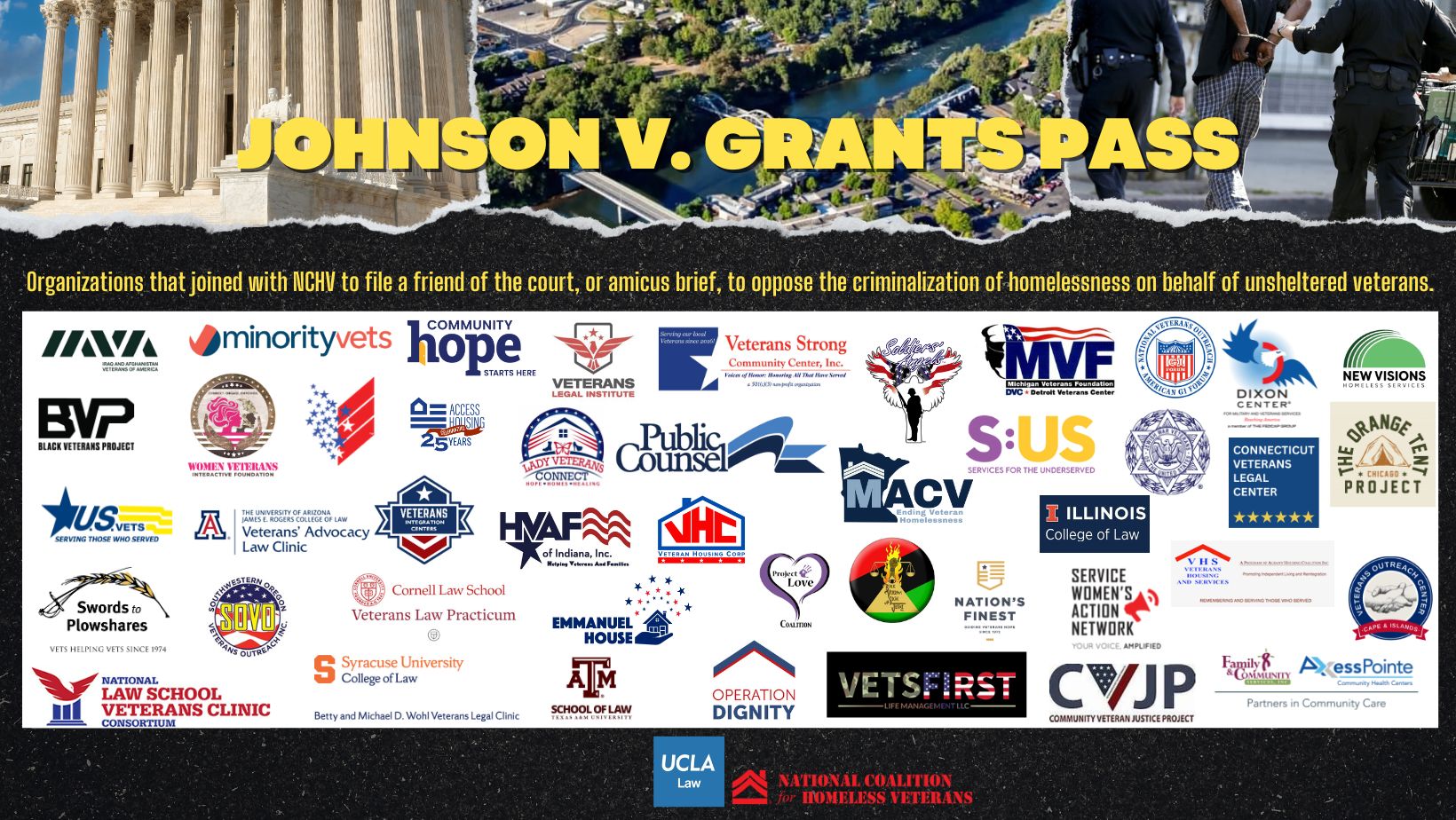
The National Coalition for Homeless Veterans (NCHV) has partnered with the UCLA Veterans Legal Clinic to take a stand in one of the most consequential legal battles concerning homelessness and the rights of unsheltered individuals in recent times. Together, they have filed an Amicus Brief with the United States Supreme Court in the pivotal case of Johnson v Grants Pass, set to be deliberated on April 22, 2024. This brief was filed on behalf of 45 veteran-serving organizations across the country to provide the lived realities of unhoused veterans and represents our collective interests to the U.S. Supreme Court.
This landmark case is a significant moment for advocacy and change, highlighting the plight of over 35,000 veterans who face homelessness on any given night across the United States. These individuals, who once served their country with honor, now confront the daily realities of sleeping in less-than-humane conditions, from sidewalks to abandoned structures, due to a lack of support and systemic barriers.
The Amicus Brief filed by NCHV and the UCLA Veterans Legal Clinic is a critical piece of advocacy, bringing to light the lived experiences and challenges faced by unhoused veterans. It serves as a powerful reminder that the stories of these veterans are not isolated incidents but are indicative of a larger, systemic failure to provide for those who have served our nation. The brief argues passionately for the Supreme Court to consider the broader implications of its decision, emphasizing the need for policies that support rather than penalize the unsheltered population.
As this landmark case approaches, it’s imperative that we rally support and raise awareness about the pressing issue of veteran homelessness and the broader implications of criminalizing poverty. The Amicus Brief filed by NCHV and the UCLA Veterans Legal Clinic represents a significant step in this direction, but it’s up to each of us to contribute to this critical conversation. By understanding the nuances of this case and its potential impact, we can collectively advocate for policies that not only end veteran homelessness but also affirm the dignity and rights of all individuals, regardless of their housing status.

